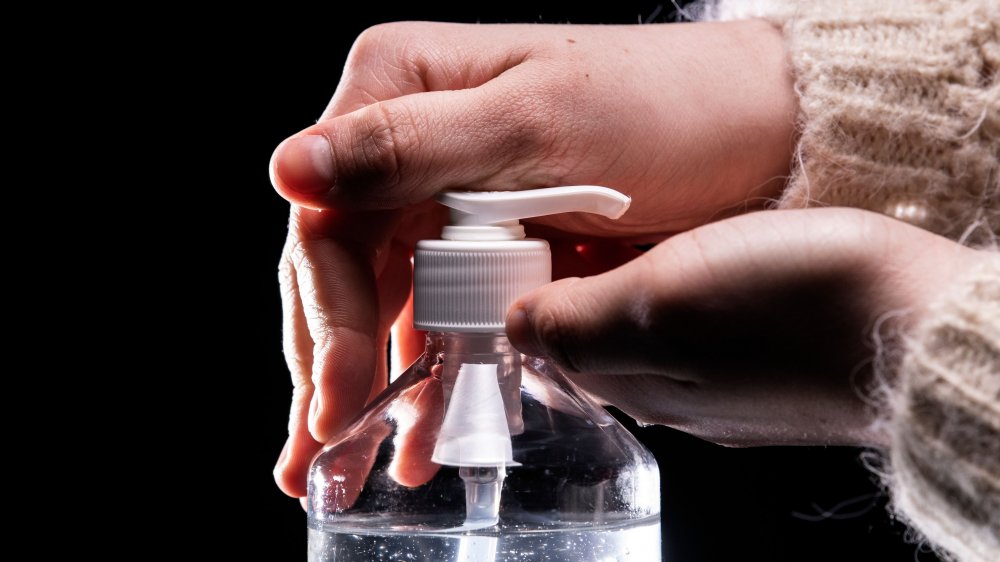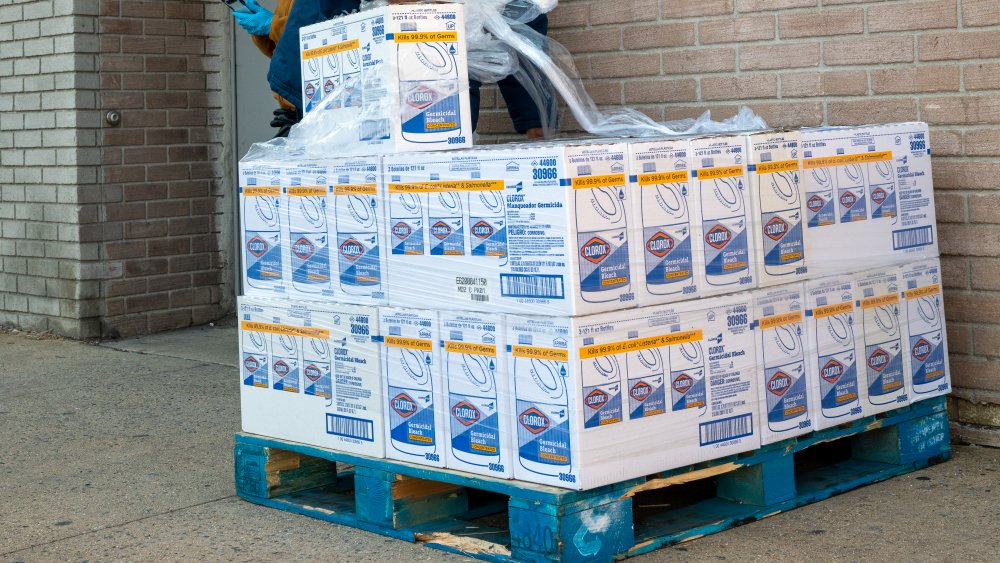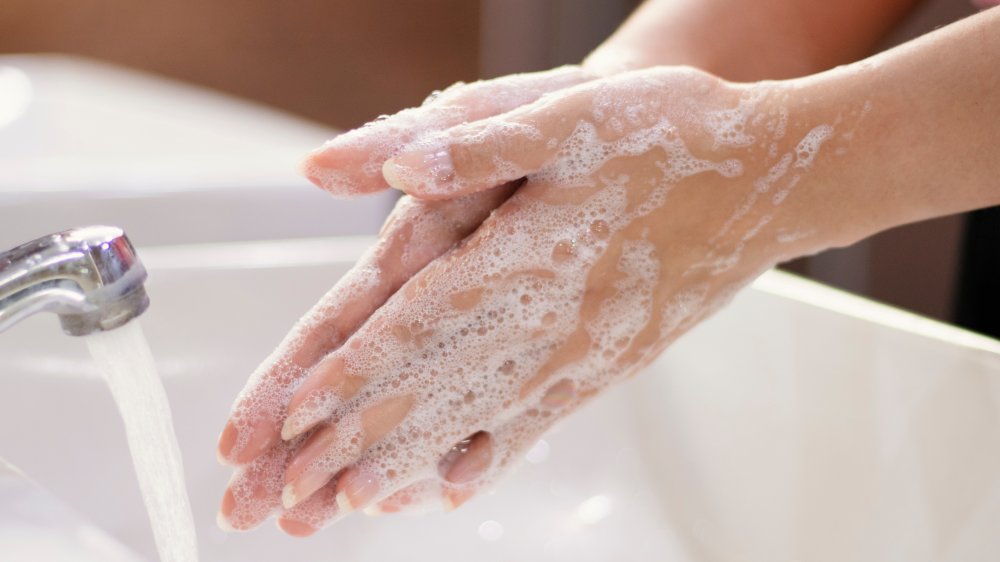Why Your DIY Hand Sanitizer Probably Won't Combat Coronavirus
If you didn't manage to make it to your local drugstore in time to buy hand sanitizer, health officials like the Centers for Disease Control (CDC) would like to remind you that now is not the time to channel your inner MacGyver and make your own. In order for a hand sanitizer to work, the CDC says it needs to contain at least 60 percent pure alcohol, and the recipes that are circulating online aren't recommending the correct ratios.
"When you buy commercial hand sanitizers, they are manufactured to have a specific concentration of alcohol," Elizabeth Scott, founder of the Boston-based Simmons Center for Hygiene and Health in Home and Community, says (via Apartment Therapy). "At home, I have no idea how you would even begin to figure that out."
Killing the coronavirus is a challenge even for big companies
It might seem easy to find alcohol, throw that into a bottle and add a bit of aloe vera gel to make the mix better for our skin — but the reverse is true. Apartment Therapy says undiluted alcohol is difficult to find — even the rubbing alcohols available commercially aren't pure because water has already been added to the mix. Because you need pure alcohol at high concentrations, it isn't advisable for you to use spirits like Tito's Vodka either, which only contains 40 percent ethyl alcohol.
Killing the coronavirus is not as easy as it sounds, even for companies whose products we use to keep our houses germ-free. When it released a list of disinfectants that could be used against the COVID-19, the Environmental Protection Agency said the companies had to show their products could work against viruses that were even more difficult to kill than the coronavirus. Any products without an EPA number cannot be considered effective, because it has not been reviewed by the agency (via ABC).
Hand sanitizers don't work as well as proper hand washing
But even if you overcome the odds and manage to pull off a DIY hand sanitizer with the right amounts of alcohol, using it the right way is also critical — which, like handwashing, is the part many of us get wrong. "The alcohol will kill organisms, but it doesn't kill them instantaneously," UC Berkeley infectious diseases expert John Swartzberg says (via KOMONews). "It takes around 60 seconds, in some cases, even 90 seconds, for all the organisms, or the vast majority of them, to be killed by the alcohol. So put enough on your hands that you get the alcohol all over your hands and then you have to wait between 60 and 90 seconds before you can be assured you're not going to transmit something to someone else."
At the end of the day, the CDC says that hand sanitizers are a poor cousin to proper handwashing, which both the U.S. government agency and the World Health Organization (WHO) say could be the most effective line of defense against the highly infectious disease.


